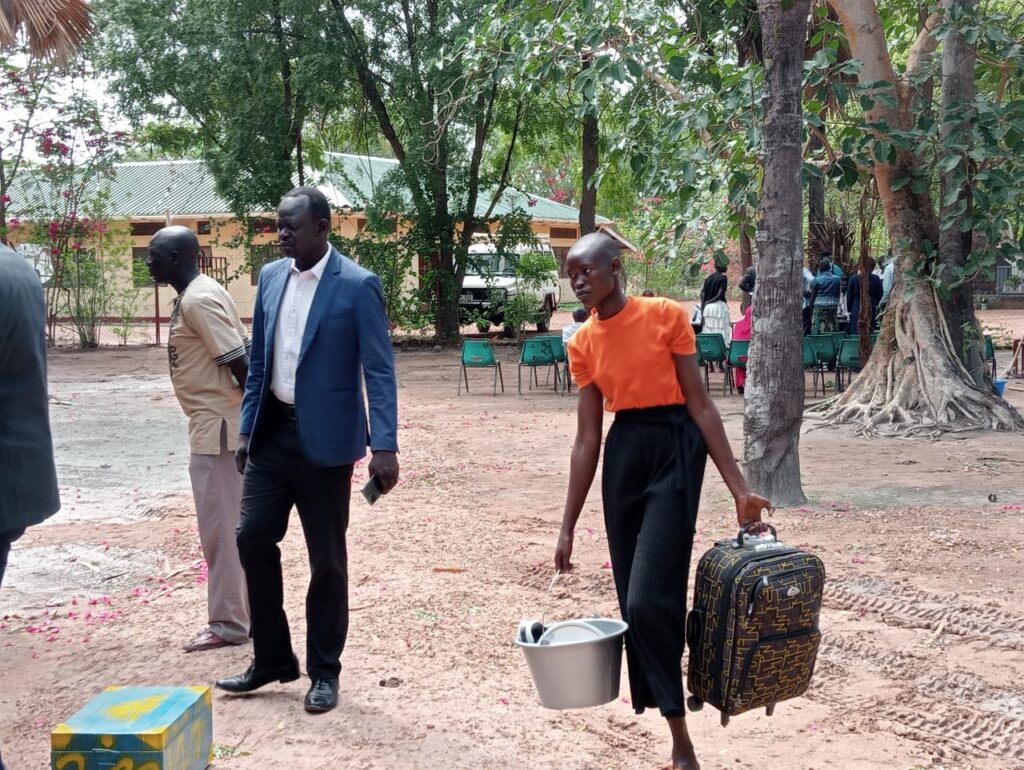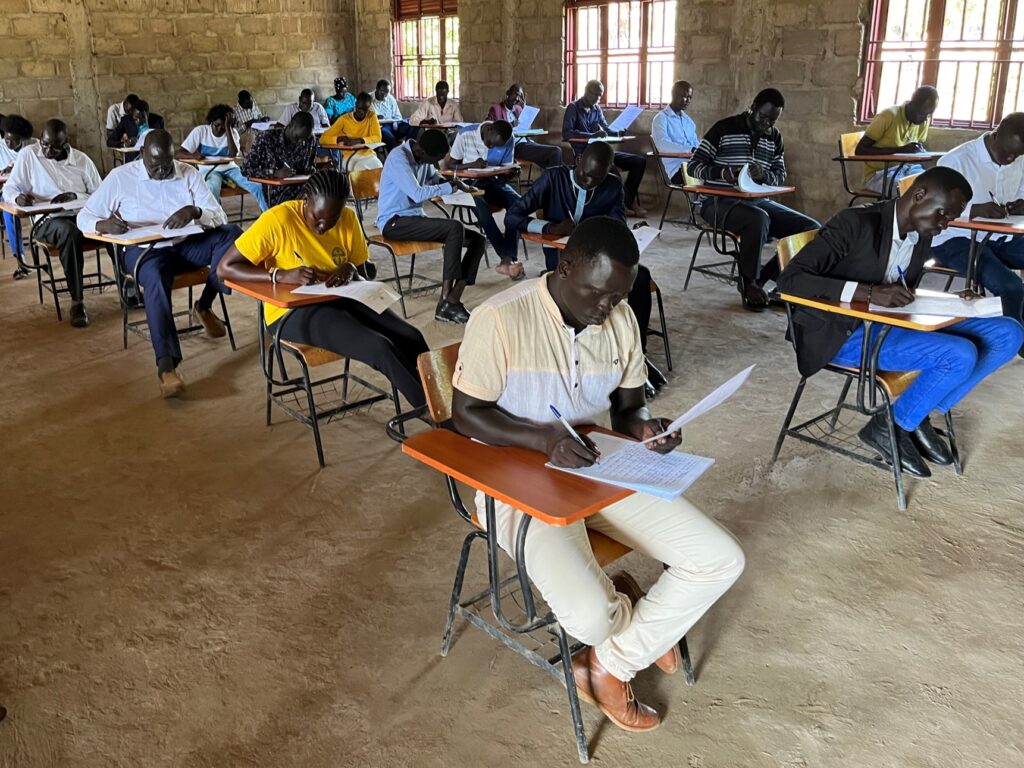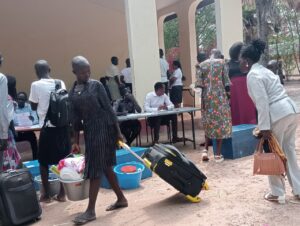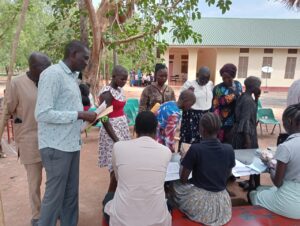
It has been heartening that many people got in touch over the last month to see how things were here, due to the ongoing civil war in Sudan. The situation there is dire, as rival leaders seek to gain as much power and wealth as possible, regardless of the suffering they cause. The only time they think of their people is when they look down to see who they are standing on. The loss of life in the conflict and the subsequent humanitarian crisis have sent shockwaves around an already fragile region.
Tens of thousands of the people now fleeing Sudan into northern South Sudan are themselves South Sudanese refugees who had fled South Sudan in 2013 because of the civil war here. Over the past few weeks they have arrived exhausted, carrying their meagre belonging, and uncertain what will happen next for them or their families. They have come at the worst possible time, as the rains have just started. Flooding usually cuts off the roads around the country, making it far more difficult to transport aid to impacted regions. To complicate matters further, by now people have used up most of their stores from last year’s harvest and it is a waiting game to see how long they can hold on for before they are forced by necessity to harvest what they have just planted. Finally, South Sudan’s largest export is oil from the north of the country, pumped through Sudan to Port Sudan. With the civil war this has all come to a sudden halt. This has fuelled hyperinflation nationally, making basic food and medicine prohibitively expensive in the market. The rains, which are seen as a real blessing, also unfortunately bring with them mosquitos and malaria. A single treatment for a family member can cost almost a month’s wages.
Uncertainty, however, is often the norm here and the South Sudanese are nothing if not resilient. How they manage continues to be something of a mystery to me. They have little alternative though. Within Loreto School and the University things are continuing as normal for the moment. In the school we have just welcomed a whole new group of first years students the Sunday before last. As part of our policy of cooperation and integration, they have come from all over the country, from different backgrounds and ethnic groups. They will be looked after through a fantastic system of school families, where students in second, third, and fourth year will act as their mother, grandmother, and great-grandmothers. Judging by the dancing and singing around the school last Saturday night I think they will be fine.

In the University we are coming to the end of our first term and are due to finish exams on Saturday. The number of students enrolled has almost doubled this year and there is already a healthy interest among people hoping to apply for our next academic year. Our focus remains on raising up business leaders, who will build the South Sudanese economy, and training teachers for secondary school. We hope to begin a new Bachelor of Education programme this year in commerce, religious education, and citizenship. In addition, we will continue growing the Catholic ethos aspect of our curriculum, with courses on ethics, theology, and introduction to the Bible as part of our ongoing human formation.
When trying to learn how to play the guitar years and years ago, one of the first songs I practiced was by the Beatles. The lyrics are known by practically everybody and they seem relevant to where I find myself today: Obladi, Oblada, life goes on, brah Lala, how the life goes on. As I said earlier, how things go on here at times, I’ll never understand, but people have no choice, so they just get on with it. Self-pity is a luxury no one can afford. They do the best they can with what they have and they do it better than I ever could. Let’s continue to pray for the situation in Sudan and to pray for each other.
Nhialic ke yin ( God bless),
Fr. Alan.
Read more from Fr Alan’s missionary journey in South Sudan:
- Looking for a Sign on the Way to South Sudan
- Building a Better Future in South Sudan
- Christmas Greetings from Fr Alan in South Sudan
- A Cup of Sugar and Maybe a Goat
- Mock Exams and Real Life in South Sudan
- As Easy as Baking a Cake
- Holy Week on the Move
- Three Arrivals and a Party
- Celebrating the Missionary Life
- Seeds of Hope
- Young People Fighting COVID-19 in Rumbek
- Ticket to Ride
- Lions, Snakes, and the World’s Deadliest Predator
- Vaccine Status: Denied
- Christmas in South Sudan
- A Bigger Shovel
- A Week in the Life of Loreto – Bishops, graduations, an ambassador, and the Pope
- Sowing Seeds
- A visit from the MSC Superior General
- Advent
- Do They Know It’s Christmas Time?
- Fr Alan in South Sudan: The Papal Visit

